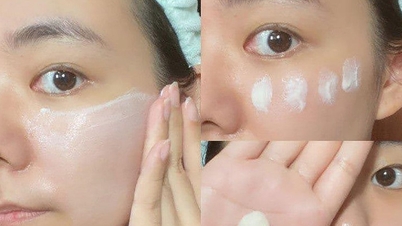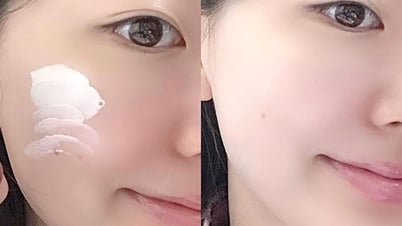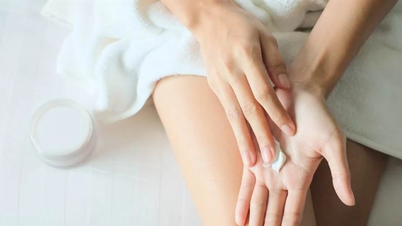 |
| When going out in the hot sun, apply sunscreen and wear a wide-brimmed hat. (Illustration image created by AI) |
Applying sunscreen is an indispensable step to protect the skin from UV rays - the cause of premature aging, melasma, dark spots and even skin cancer. However, many people complain that, despite using adequate sunscreen, the skin is still dark, prone to acne and dull.
According to dermatologists, the cause lies in seemingly harmless mistakes that silently destroy the skin's protective barrier, causing premature aging.
Choosing the wrong sunscreen
Not all products are suitable for all skin types. People with oily or acne-prone skin should not use sunscreens containing mineral oil, thick silicones, or fragrances as they can easily clog pores and cause acne.
Dr. Shari Marchbein, a dermatologist in New York (USA), recommends choosing sunscreen that is oil-free, non-comedogenic, and has a light texture, especially in tropical climates like Vietnam.
Applying insufficient amount of cream
Many people only use a small amount of product because they are afraid of clogging their skin or to be frugal. In fact, to achieve the protection as stated on the SPF label, you need to apply about 2mg of sunscreen per cm² of skin, equivalent to 1/4 teaspoon for the face.
If you use less, your skin will not be protected properly, leading to dark spots, melasma, and even sunburn.
Do not reapply cream every 2-3 hours
Under the influence of sweat, oil and harsh sunlight, the initial layer of cream will wear away, reducing the protective effect. A study published in the Journal of the American Academy of Dermatology showed that UV protection ability is reduced by up to 50% after only 2 hours if not reapplied.
Dermatologist Sandra Lee (Dr. Pimple Popper) also emphasizes: "If you are outdoors, set a reminder to reapply sunscreen at least every 2 hours."
Do not apply sunscreen to the skin around the eyes and lips.
The habit of ignoring the skin around the eyes and lips is also the reason for uneven skin tone. These are sensitive, fragile areas and are very susceptible to darkening and wrinkles if not properly protected.
Many people are afraid that sunscreen will sting their eyes, but in fact, mineral sunscreens (physical sunscreens) with zinc oxide and titanium dioxide are safe, gentle choices for the eye area.
Not protecting skin from the sun
A serious but often overlooked mistake is using sunscreen as the “only shield” against the sun. In fact, no product provides 100% protection from UV rays.
Sunscreen is just one part of a comprehensive sun protection strategy that also includes wearing a wide-brimmed hat, sunglasses, sun-protective clothing, and avoiding the sun during peak hours (10 a.m.–4 p.m.).
Source: https://baoquocte.vn/nam-sai-lam-va-cach-khac-phuc-khi-su-dung-kem-chong-nang-323373.html


















![[Video] Hanoi Oncology Hospital receives Second Class Labor Medal](https://vphoto.vietnam.vn/thumb/402x226/vietnam/resource/IMAGE/2025/11/08/1762561557241_img-2021-9778-png.webp)






















![[Video] Hue Monuments reopen to welcome visitors](https://vphoto.vietnam.vn/thumb/402x226/vietnam/resource/IMAGE/2025/11/05/1762301089171_dung01-05-43-09still013-jpg.webp)





































































Comment (0)